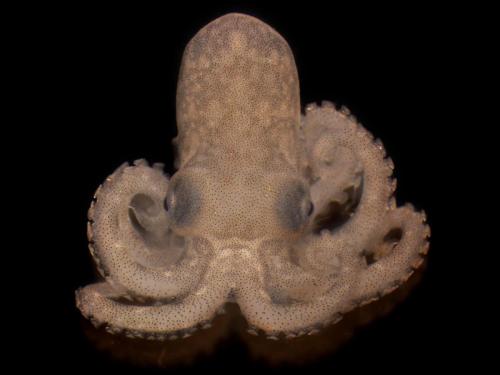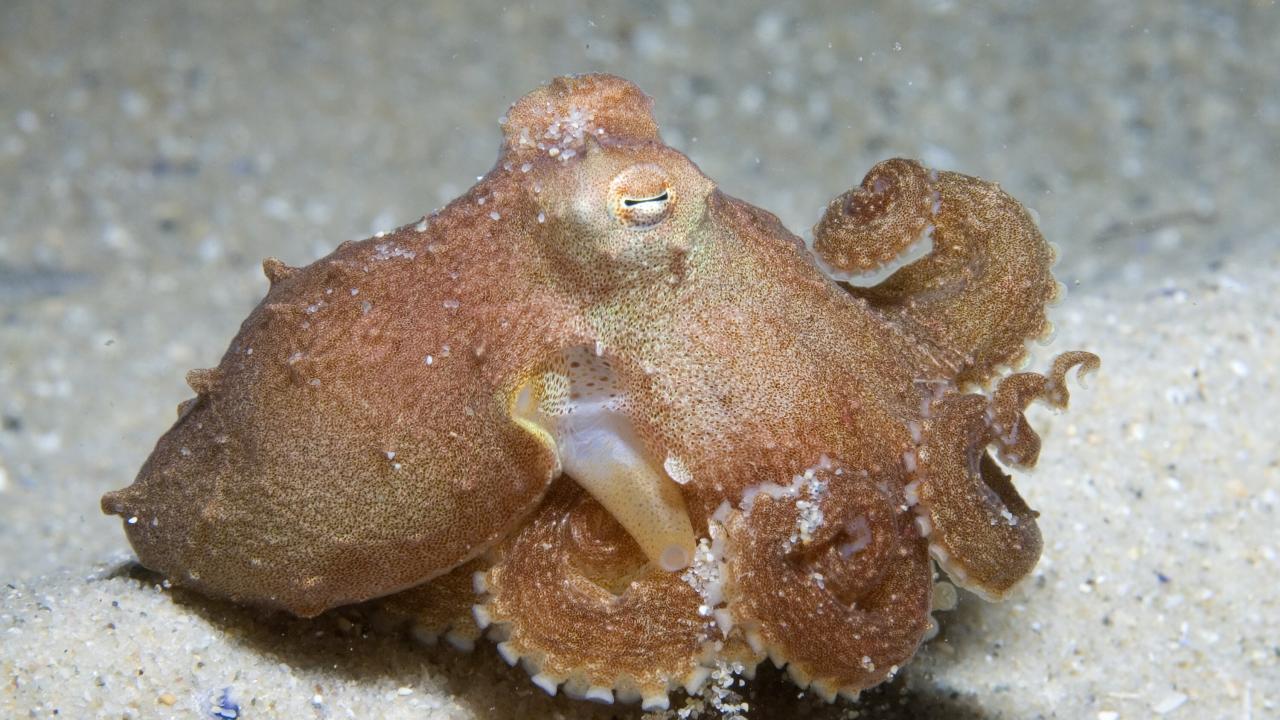A few degrees of ocean warming could leave octopuses unable to see, according to a new study by researchers at the University of Adelaide, Australia and UC Davis. Embryo octopus raised in warmer waters lacked proteins essential to vision and had a high mortality rate.
The work was led by Qiaz Hua, at the time a graduate student working with Bronwyn Gillanders at the University of Adelaide. Hua had contacted Dietmar Kültz, professor of animal science at UC Davis, to act as an external advisor on her Ph.D. thesis. Kültz’s lab studies how environmental stresses affect the profile of proteins (the proteome) produced by aquatic animals.

Hua raised hatchling octopuses in the lab under three temperature conditions: 19 C controls; 22 C, corresponding to present-day summer ocean temperatures off southern Australia; and 25 C, predicted for the end of this century. She worked with the Southern Keeled octopus, Octopus berrima, a common species on the south Australian coast. Octopuses rely heavily on vision to find food, avoid predators and communicate with each other.
Analyses in Kültz’s lab at UC Davis showed that octopuses raised under projected future temperatures lacked crystallin, an important structural protein in the lens of both octopus and human eyes, and other eye-related proteins. They also showed signs of cellular stress responses and had a much lower survival rate compared to embryos raised under control and present-day conditions.
The results suggest that in a warming ocean, octopuses are likely to have impaired vision if they even survive to maturity, Hua said in a news release.
“Our study shows that even for a highly adaptable taxon like octopuses, they may not be able to survive future ocean changes,” she said.
The paper was published April 4 in Global Change Biology. Additional authors on the paper are Kathryn Wiltshire at the University of Adelaide and Zoe Doubleday at the University of South Australia. The work was supported in part by the National Science Foundation.
Media Resources
Projected ocean temperatures impair key proteins used in vision of octopus hatchlings (Global Change Biology)
Heat stress from ocean warming harms octopus vision (University of Adelaide news release)
